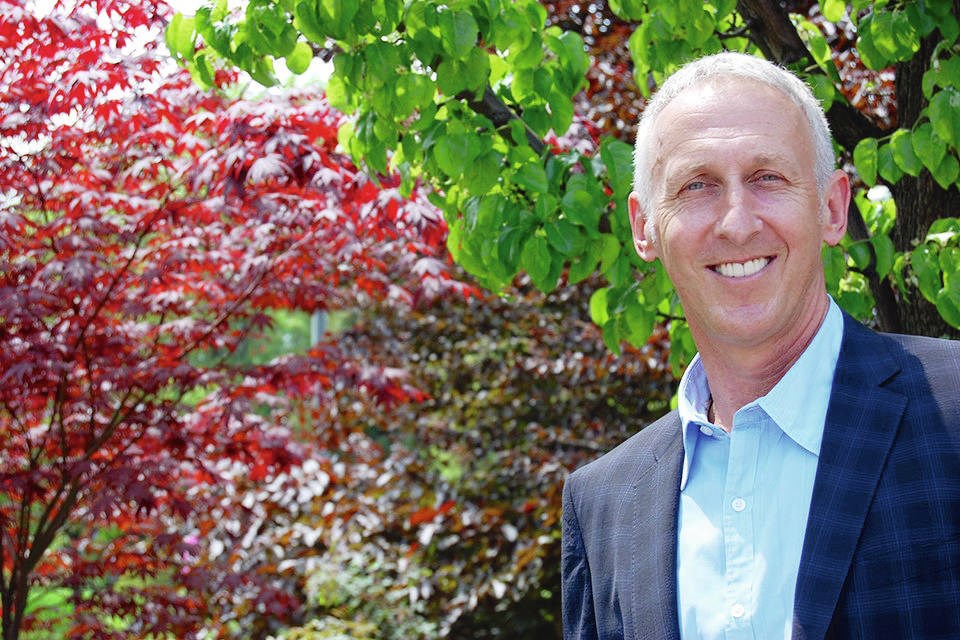Today, the University of Victoria welcomes a new president. Professor Kevin Hall is a civil engineer who comes from the University of Newcastle in Australia, where he was the vice-president and senior deputy vice-chancellor of global engagement and partnerships.
Previously at Queen’s University in Kingston and Guelph University, he has focused on water and health, especially in marginalized communities in southeast Asia. This makes him, like so many civil engineers, at heart a public health professional.
Hall is described as having a deep commitment to environmental sustainability and the UN’s Sustainable Development Goals.
He says he is excited to be joining a university that “strives to be a global exemplar in vital causes that hold the key to our future” and, among other things, “engages deeply with communities locally and around the world to drive social, environmental and economic change.”
I welcome a leader with such values and grounded experience — and I have a challenge for him: Make UVic a global leader in addressing the society-wide challenges posed by the Anthropocene and the growing movement to create One Planet communities and societies. In particular, this will mean working in partnership with the many people, groups and organizations already engaged in this work in this region.
Regular readers of my column will know that the broad societal implications of the Anthropocene and the need for a local response by becoming a One Planet region has become a primary focus for my work.
This approach integrates the concepts of both healthy communities and sustainable communities, with an important focus on social equity and a just transition to a One Planet society.
In fact, the work of Conversations for a One Planet Region, the NGO I have founded, has its roots in a campus working group I helped set up at UVic before my retirement.
UVic in the Anthropocene “aims to engage the University and the wider community in addressing the challenges of the Anthropocene in new, creative and effective ways.” The conversations began as a series of preparatory public discussions as part of an Ideafest event put on by the group in 2017.
But in addition to working in and with the community — an approach in which Hall has considerable experience — this calls for a major reorientation of UVic’s own education, research and community service work.
So broad are the issues and challenges of the Anthropocene that I cannot think of a single faculty or discipline that should not make a contribution.
But one important element is missing: There is no school or faculty that focuses on the built environment (civil engineering notwithstanding). Yet we are highly urbanized and the Greater Victoria region is a major urban centre in B.C. The region would be well served by a centre focused on how to create healthy, just and sustainable “One Planet” communities.
But in addition to focusing on the built environment (architecture, urban planning, civil engineering, transportation, parks and ecological restoration), such a centre should consider how we build community in the social sense, how we transform social norms, cultural values and practices and create a “green” local economy.
In approaching this challenging task, Hall may want to read a recent article — “Unlearning human-centrism” by four Belgian graduate students. “What does it take,” they ask, “for young people to become ecologically aware citizens?”
The answer, they suggest, is not simply learning facts and figures but “changing your outlook on life … And that is not what you learn in the groves of academe.”
Instead, “the university still treats sustainability as a separate discipline or as an ‘add-on’ to the standard package meant to sustain our competitiveness by advancing green technologies,” they write.
As UVic in the Anthropocene shows, there is a clear understanding of the importance of this challenge among at least some faculty. But at UVic, too, it remains a bit peripheral.
So broad are the issues inherent in becoming a One Planet community and society, involving every faculty and discipline, that we really need UVic to become a “University of the Anthropocene.” In doing so, it would become “a global exemplar in vital causes that hold the key to our future.”
Dr. Trevor Hancock is a retired professor and senior scholar at the University of Victoria’s School of Public Health and Social Policy



